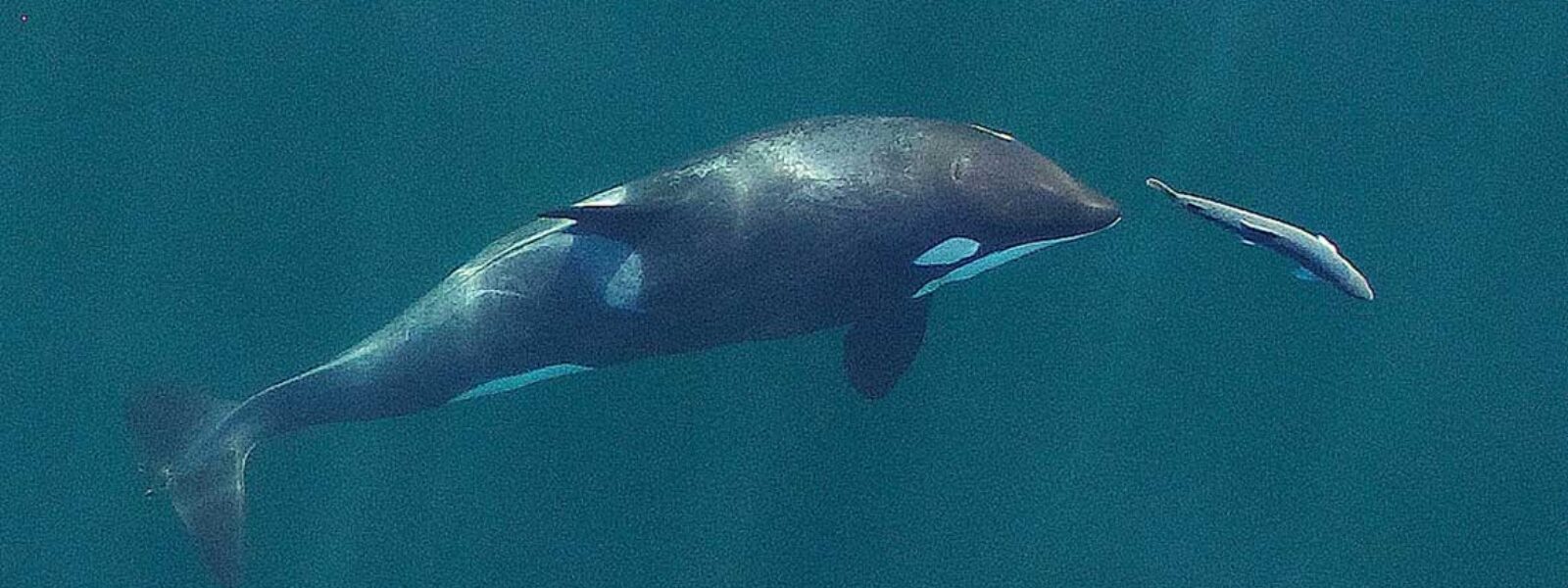

Opinion Piece.
"It's a message…They know they're being watched, they know what's going on, and they know that there's not enough food. And maybe they know that we have something to do with it."
This quote, from Ken Balcomb, founder of the Center for Whale Research and who has studied the orcas for 40 years, is about the Southern Resident (SRKW) orca mother who has been carrying her dead calf for more than seven days now. Balcomb’s words are his entry into the debate regarding the precise meaning of this behavior, often characterized as mourning, common in many whales and dolphins who lose their young.
It also captures my personal sentiment precisely.
There is much speculation as to why this mother is grieving in this way. There have been other observed cases of dolphin grieving rituals, so this behavior is not out-of-the-ordinary.
Assuming that orcas experience emotions, what the Southern Residents are going through right now must be rather devastating. When we take into account that orcas are cognitively advanced, with some of the largest, most complex brains on the planet, it seems safe to also assume that they observe and think about the world around them. They spyhop, gazing at the land and the surface of the water. They see other species – birds, maybe bears and deer, us. Over the generations, through the Industrial Age and beyond, they’ve watched us proliferate – modifying the environment at breakneck speeds, changing land and oceans on a scale never really seen before.
Are we to believe that the enduring, culturally-rich cetacean societies of the world are ignorant to our presence, or our adverse effects upon their lives?
The Southern Residents have long been victims of the regular gamut of human abuse, and continue to be. They suffer from lack of food (the fault of humans due to dams blocking salmon breeding streams - not seals, as some would like to believe), industrial pollution, and the constant onslaught from the noise of tour boats filled with well-meaning people wanting to get a closer look.
It is painfully obvious that many human activities in the SRKW habitat must be curtailed in order to save the lives of these orca individuals. Some steps have been taken – for example, an executive order signed by Washington Gov. Jay Inslee, which is supposed to protect both orcas and their primary prey – the Chinook salmon.
However, it might be too late: as is often the case, human interests (tourism, fisheries, hydro-electric dams, dumping pollutants, etc.) are winning out, thanks to money and entrenched notions of human exceptionalism. As large as the cry is to save these iconic beings, the writing seems to be on the wall -- something the orcas themselves might see as well.
Could this orca mother be using her dead infant as a last-ditch effort, a plea for mercy? Is she proffering up her infant to those on the boats with cameras and phones, showing the world what we’ve done to her infant, to her kind?
Unless we really start listening, questioning our behavior and attitudes, and making space for other beings on this planet, it will be too late for the Southern Residents. We should stop letting this sad history repeat itself.
Photo credit Oregon State University / Flickr.